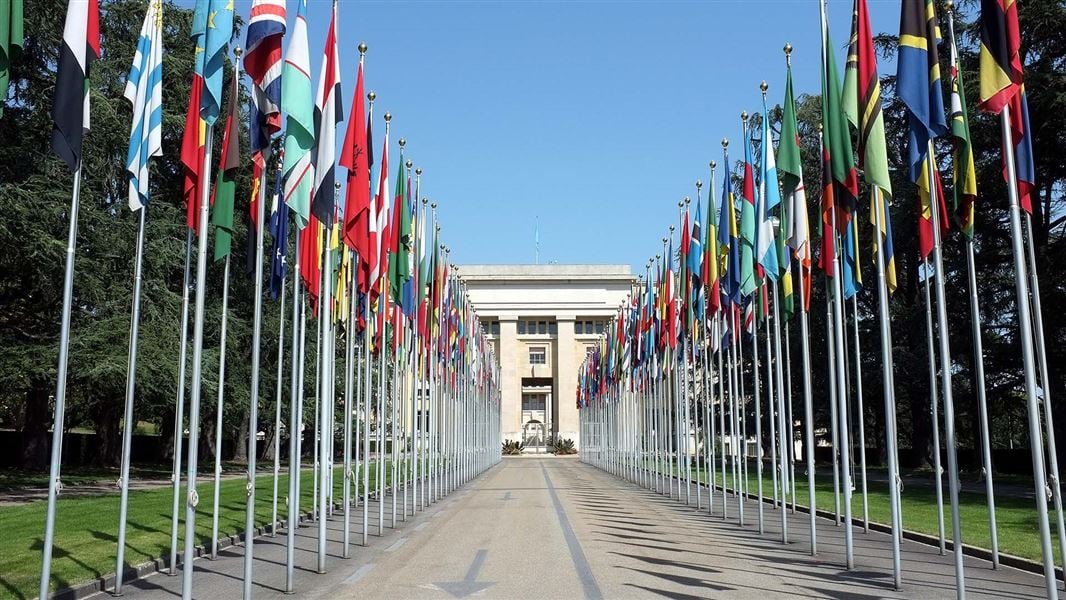Founded in 1945, the United Nations (UN) is the world’s largest intergovernmental organisation for cooperation on a range of issues.
The Ministry of Foreign Affairs and Trade (MFAT) is the lead agency in New Zealand for all UN forums.
DOC has an interest in promoting conservation in the following UN forums:
United Nations General Assembly (UNGA)
UNGA is the main forum for high level discussions and policymaking on a wide range of international issues. It meets annually and passes resolutions relating to conservation. DOC provides input into the:
- Sustainable Fisheries Resolution
- Oceans Resolution
- Biodiversity Resolution arising from the Convention on Biological Diversity Conference of Parties
- Wildlife Trafficking Resolution.
These resolutions provide a summary of agreed commitments and goals that countries implement individually as well as through regional organisations.
United Nations Environment Programme (UNEP)
UNEP sets a global environmental agenda, promotes the environmental dimension of sustainable development within UN systems, and advocates for the global environment.
The Governing Council under UNEP is the United National Environment Assembly (UNEA). A key output of the UNEP is the agreement on the Sustainable Development Goals (SDGs).
United Nations Open-ended Informal Consultative Process on Oceans and the Law of the Sea (UNICPOLOS)
Established by UNGA, UNICPOLOS reviews developments in oceans affairs and the United Nations Convention on the Law of the Sea (UNCLOS) with the aim of improving coordination and cooperation. UNICPOLOS then reports directly to UNGA.
Annual action-focused meetings address topics critical to the high seas and to marine conservation. DOC provides input into New Zealand’s position for these meetings on matters of conservation interest.
Ad Hoc Working Group of the Whole on the Regular Process for Global Reporting and Assessment of the State of the Marine Environment, including Socioeconomic Aspects (Regular Process)
In 2005, UNGA established a Regular Process for Global Reporting and Assessment of the State of the Marine Environment, including Socioeconomic Aspects (Regular Process) – also referred to as a regular process of World Ocean Assessments.
The aim of the Regular Process is to improve our collective understanding of the oceans and provide decision makers with science-based information. New Zealand is actively engaged in the Regular Process, with experts from around the country providing vital input.
Marine biological diversity of areas beyond national jurisdiction
Two thirds of the ocean lies beyond national jurisdiction. Pressure on the biodiversity within these areas is increasing due to environmental stressors such as climate change and human activities.
Existing activities such as fishing and new activities such as geoengineering are expected to intensify due to population growth, increased demand, resource/space scarcity and improved technology to exploit deep sea resources.
A new treaty for the conservation and sustainable use of marine biodiversity in areas beyond national jurisdiction (BBNJ) is being negotiated within the framework of the UN in response to intensifying and diversifying threats. This formal intergovernmental conference follows nearly a decade of informal discussions.
The new treaty will fill governance gaps and facilitate coordination and coherence across existing international instruments and bodies that play a role in marine biodiversity conservation.
Key components of the treaty will include:
- area-based management tools, including marine protected areas
- environmental impact assessments
- access to and use of marine genetic resources, including sharing of benefits
- developing country capacity building and technology transfer.
MFAT leads New Zealand’s negotiating team, with support from DOC, the Ministry for Primary Industries, the Ministry for the Environment, the Ministry of Business, Innovation and Employment, Maritime New Zealand and Te Puni Kōkiri.
About the Intergovernmental Conference on BBNJ
United Nations Fish Stocks Agreement (UNFSA)
The 1995 UNFSA entered into force in 2001. It builds on the United Nations Convention on the Law of the Sea to address problems relating to the management of straddling and highly migratory fisheries in the high seas and within Exclusive Economic Zones.
Its goal is to ensure the long-term conservation and sustainable use of straddling and highly migratory fish stocks.
